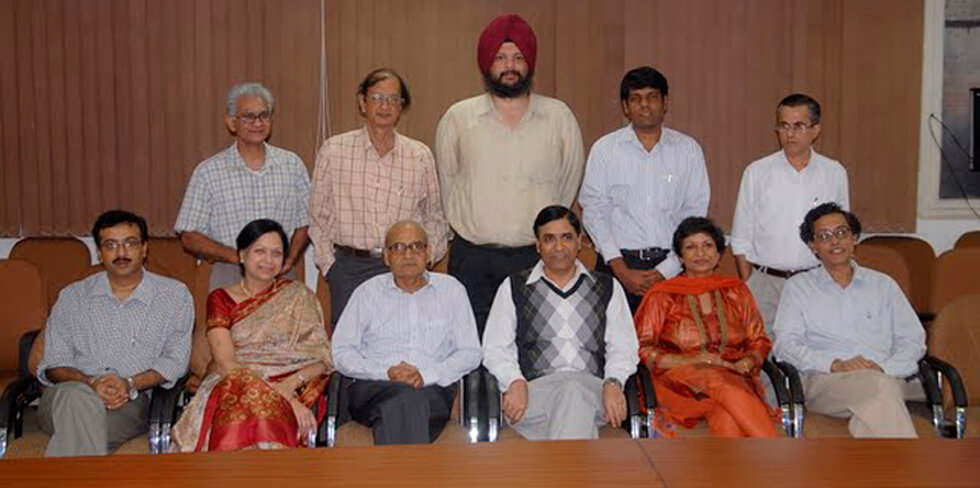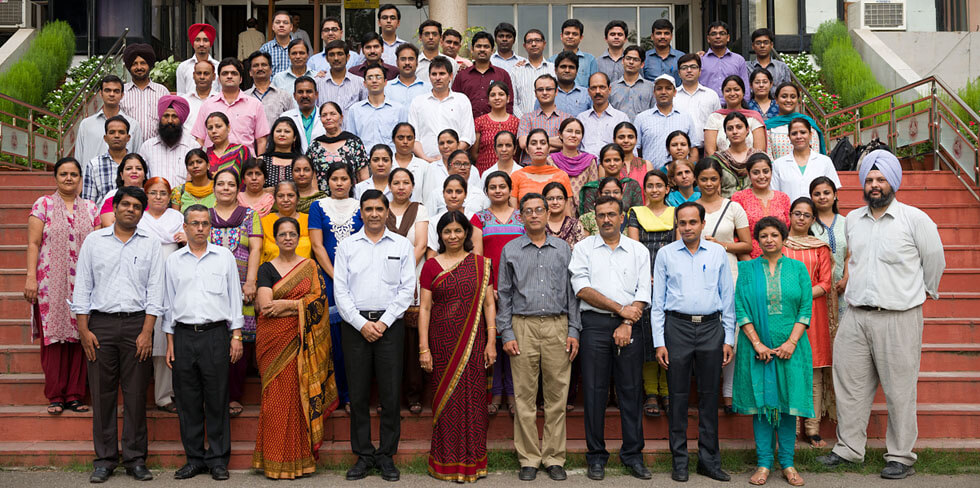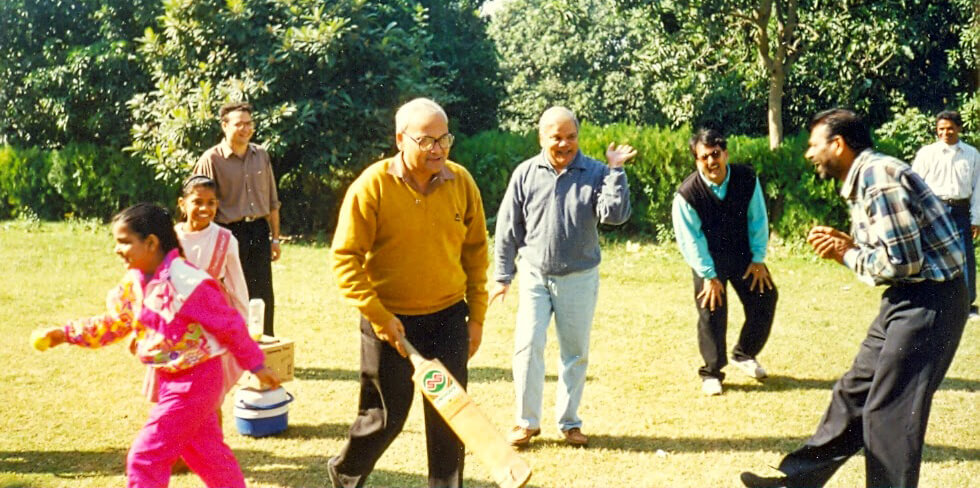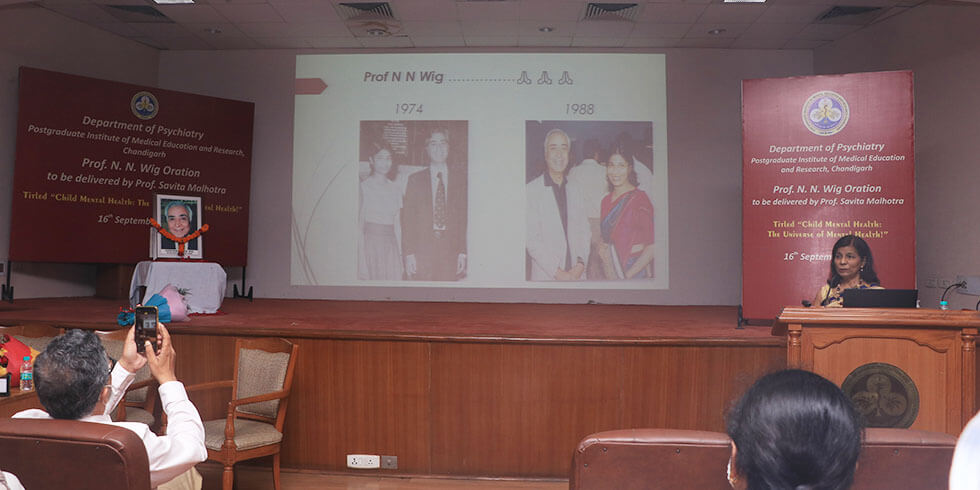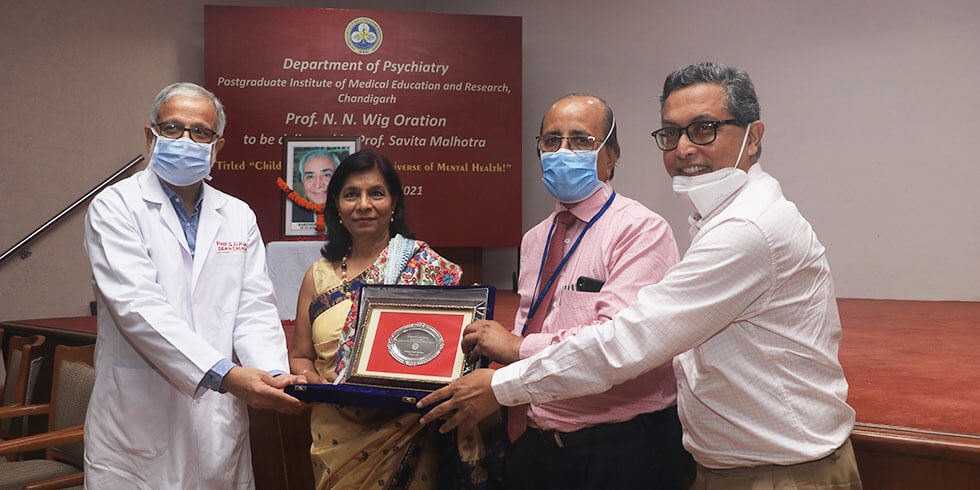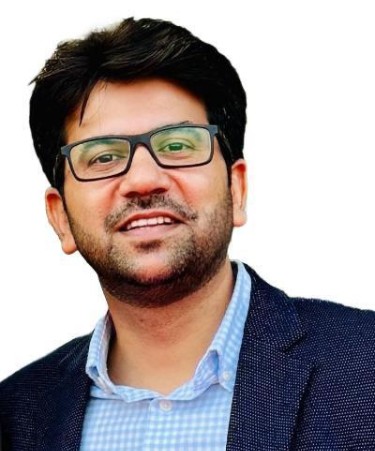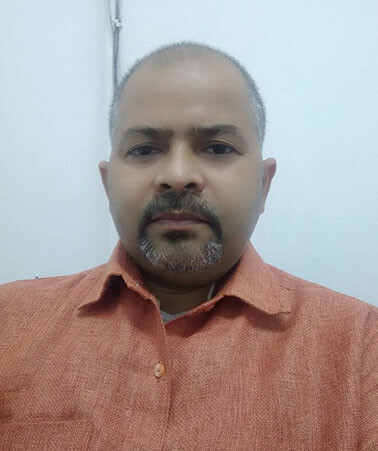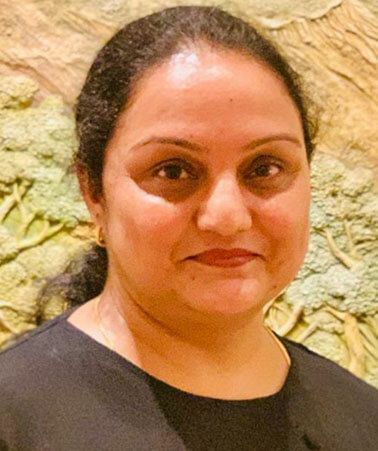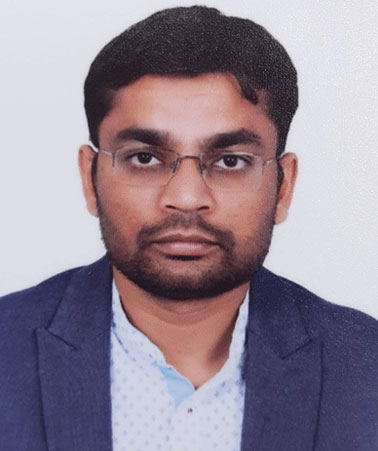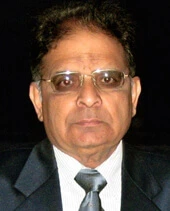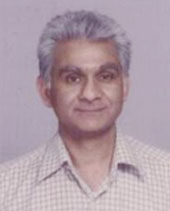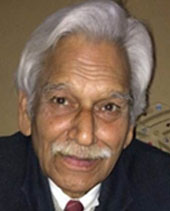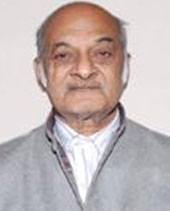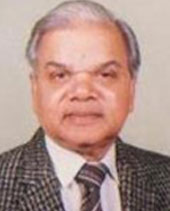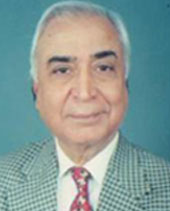The Addiction Psychiatry Service started in 1978 as a weekly outpatient Alcohol and Drug Dependence Clinic (ADDC). Later in 1988-89, following the implementation of the Drug De-addiction Program (DDAP) of the Ministry of Health and Family welfare, the Drug De-addiction and Treatment Centre (DDTC) was established as a specialty section of the Department. With this, the services gradually expanded to daily OPD, inpatient service, community service, laboratory service, teaching and training, liaison with other agencies, and policy making. Since 2014, DDTC has been running its DM Addiction Psychiatry course the first in the country.
OPD timings
The OPD runs from Monday to Saturday forenoons (excluding public holidays) and Tuesdays, Wednesdays and Friday afternoons. Forenoon registrations start at 8:00 am and continue till 11 am (except on Saturdays when it stops at 10:30 am) and afternoon registration starts at 2 pm and stops at 3:30 pm.
Walk-In Clinic and Detailed Work-Up
The formal registration is done in the DDTC OPD. After registration coordinated multi-disciplinary team consisting of Psychiatrists, Clinical Psychologist, PSW and a trained counsellor take care of patient’s clinical and psychosocial needs. The SR, following discussion with a Faculty member, may admit the patient to the DDTC Ward after obtaining a written consent from patient/family members for following the rules and the requirements of the DDTC Ward. Otherwise, treatment is initiated and continued on OPD basis. For detailed evaluation, the patient and a close family member are called on a specified date and time (8 to 8:30 am). The appointments given are recorded in an Appointment Register by the SR dealing with the patient in the WIC. The patients with a dual diagnosis are given appointments for detailed evaluation on Fridays. DM (Addiction Psychiatry) SRs also do D/W/U on specific days. On all other days, D/W/U are done by the JRs. In both the cases, after discussion with a Faculty, diagnosis is finalized and further management is planned and initiated. Follow up of patients after the D/W/U is done by the JR (Tuesdays and Fridays afternoon) till they are posted out of DDTC. Once the JRs are posted out from DDTC the OPD SRs take care of these patients.
Special Clinics
Opioid Substitution Therapy clinic: The OST clinic is run on two days a week basis (Tuesdaya and Wednesdays) by a coordinated multi-disciplinary team of Psychiatrists, Psychologist, PSW, trained addiction Counselor, and the Pharmacists. It uses buprenorphine-naloxone (BNX) fixed dose combination (2/0.5 mg). All OST patients are encouraged and incentivized to attend weekly manual based group therapy sessions. It consists of initial psycho-education, management of craving, imparting stress and anger management skills, and relapse prevention
Dual Diagnosis Clinic:
A DD clinic runs on a weekly basis (on Friday) by a multidisciplinary team. All cases, for which detailed evaluations are done, are given a specialty clinic number (DD No). Group sessions for the DD patients are conducted every Friday afternoon
OPD Records
Please see the record maintenance section of General Adult Psychiatry OPD
Responsibilities of Senior Resident
OPD SR
Forenoon DDTC OPD runs six days in a week from Monday to Saturday. There are afternoon OPDs on Tuesdays, Wednesdays and Fridays. Two special clinics namely the Opioid Substitution Therapy (OST) and the Dual Diagnosis (DD) also run in the OPD, on Wednesday and Friday afternoon, respectively. Detailed evaluation of the patients Registered in DDTC OPD is done from Wednesday to Saturday mornings
Clinical duties:
- Clinical duties are similar to Psychiatry OPD SRs. Additional points are mentioned below
- If two SRs are giving appointments for D/W/U, there should be a co-ordination among them to ensure optimal number of detailed evaluation. Patients are to be given earliest date available for detailed work-up to minimize the number of dropouts
- The OPD SR must also carefully fill up the DAMS data attached at the end of the Walk-In Proforma
- The afternoon OPDs are designated as follow-up OPDs. However, new patients walking in during the afternoon must also be examined by the SRs and the usual procedure is to be followed
- As mentioned earlier, DDTC OPD has two special clinics, the OST and the DD clinic. One SR would be designated as special clinic SR. The special clinic SR would be responsible for the clinical as well as administrative issues related to these clinics
- OST clinic SR must make sure that all patients taken up for OST have an OST number. He/she is also responsible for the proper maintenance of OST Register, which is actually filled by the nursing staff. He should be present during the group sessions prior to the beginning of the clinic. He/she should act as coordinator in the group sessions. To ensure apt attention in record keeping, OST Registers are to be shown to the consultants during the first ward administrative meeting of any month
- Work ups of patients suffering from DD are to be done on Friday mornings. OPD SR must ensure that each DD patient is registered in the DD clinic so that he/she can access the special services. Except in exceptional circumstances, all patients suffering from co-occurring disorder would be encouraged to follow up in the DD clinic. SRs/ Consultants would preferably examine the patient during follow ups. JR would not prescribe treatment unless they have discussed with Consultants/ SRs. Frequency of follow up should be at least once in 2 weeks for the first month and then depending on the clinical requirement once in a month to once in two months
- The SRs posted in DDTC are responsible for the data entry of the Walk-In as well as the work-up patients. Data entry is an ongoing process and SRs must keep on updating the status of the same during the DDTC administrative meetings held on Mondays of every week
- At the end of their posting as DDTC OPD SR, he must give a proper ―hand over‖ to the new SR taking over the responsibility. The previous SR must follow the Departmental hand over proforma to make sure the hand over process in complete and flawless
Administrative
- One of the OPD SRs would be the administrative in charge
- His/her job is to ensure coherent, seamless and collaborative efforts from the multidisciplinary team which is at place in DDTC and consists of PSWs and nursing staffs in addition to the trainee residents
- Any significant event (e.g. episode of violence, intentional destruction of OPD properties etc) of the OPD has to be reported immediately to the Faculty in OPD or the Faculty I/C of the patient
- The OPD I/C SR depending on feasibility/availability is expected to attend the DDTC administrative meetings held on every Tuesday morning at 9:30 AM. The OPD SR is supposed to discuss the administrative issues related to the OPD area and carry out the decision
Academic and Research Duties: Duties are similar to the Psychiatry OPD SR
Responsibility of JR-DDTC
The JRs are posted to the DDTC out of a common pool from the Department of Psychiatry, usually for a period of four months. During their posting in the DDTC, they are supposed to follow-up their Psychiatry cases on Wednesday afternoon in Psychiatry OPD
In the OPD
- General responsibilities are similar to those laid down for Psychiatry OPD. Additional points are mentioned below
- Does follow-up of the cases he/she has examined in the OPD or treated in the Ward
- Completes entries in the New Case Register for the cases examined in detail
- General responsibilities are similar to those laid down for Psychiatry Ward. Additional points are mentioned below:
- Provide direct/first hand care to, and maintain complete records of, the case allocated to him
- Attend all group meetings, including AA/NA meetings every Sunday
- Enter his new admissions/discharged cases in the Ward Admission Register
- Enter his new, so far unregistered cases, in the DDTC New Case Register
- Assist the SR in clinical/administrative work like, random ward searches, regular urine screening for drugs
- Maintaining urine screening, ward search, and AA/NA meeting Registers
- DDTC has an in-patient bed strength of 50 (20 operational; others to be commissioned later in 2019)
- The services provided in the DDTC Ward are similar to Psychiatry Ward. The additional points are mentioned below
- For routine admission the attendant is not allowed to stay with the patient. Only in specific cases, where clinically warranted, the attendant(s) is/are allowed for a brief period
- The patients are periodically subjected to routine and surprise checks for possession or consumption (Chromatographic immune assay of urine for opioids and other drugs) of substances of misuse
- Some special investigations are offered to all inpatients: HIV, VDRL, HCV and HBV serology
- In all cases withdrawal rating proforma to be entered on every day for one week or end of withdrawal, whichever is later
- Urine CIA or TLC are done for each patient in ward, initially upon admission, then on a random basis at least once every week. Urine CIA or TLC MUST be done whenever patients return from short leave
- Case to be discharged only after consultation with Faculty, unless there are compelling and immediate reasons for discharge (typically on urgent disciplinary grounds, e.g., gross disruptive activities or violence in the ward, drug smuggling etc.) in which case SR can take the decision but must inform the Faculty the following day and fill in an Incident Report (copy available with Nursing staff)
- Incident reports are also to be filled of absconding case, drug recovery from patients, or any other major administrative incidents
Essentials of Record-Keeping in the Ward: Similar to the General Adult Psychiatry Ward
DDTC Ward SR
DDTC ward can accommodate a maximum of 50 inpatients
Clinical duties:
- Clinical duties are similar to Psychiatry Ward SRs. Additional points are mentioned below
- Must ensure ward searches 1-2 times/week and urine screening; days should be chosen randomly
- SR also must make sure that the data entry of the discharged patient is complete before he/she signs the case file of the patient
- The DM, Addiction Psychiatry SR must have at least 3 patients, at any point in time,under his/her direct care
- DDTC Ward SR is the administrative I/C of the ward. The ward SR is the coordinator of the administrative meetings that take place every Tuesday morning at 9:30 in the DDTC Round Room.
- The Ward SR’s job is to ensure coherent, seamless and collaborative efforts from the multidisciplinary team which is at place in DDTC and consists of PSWs, clinical psychologist/s and nursing staffs in addition to the trainee Residents
- Any significant event (e.g. abscond report, episode of violence etc.) of the ward has to be reported immediately to the Faculty I/C of the patient
- It has to be brought in to the notice of the Faculty I/C before any unplanned, premature discharge (on request or against medical advice)
Academic and Research Duties: Duties are similar to the Psychiatry Ward SR
1. Liaison with Public
The Centre has been actively participating in increasing the awareness of the general public towards the issues related to drug addiction and to provide education to the general public in it. This is in the form of presentations and interactive discussions at many levels in the community using various forms of media
2. Liaison with the law enforcement agencies
Personnel from the law enforcement agencies (Narcotics Bureau and Police) are trained periodically, on request
3. Liaison with the community and integration with general and mental health
The DDTC maintains active liaison with the community. This includes active consultation with self-help groups such as Alcoholics Anonymous (AA), Narcotics Anonymous (NA), and Al-Anon and also with other local NGOs voluntary and other counselingcenters (including those supported by the government of India, Ministry of Social Justice and empowerment). In addition to accepting C-L from these sources and from general medical practitioners, advice and guidance is extended towards their handling of drug addicts. Also, on request, the facility of our laboratory is extended for the cases referred by them. Treatment camps and awareness programs on drug addiction are organized on a monthly in the community (villages/slums, school/ colleges, factories etc.)
[/item] [item title=”COMMUNITY SERVICES”]
Please see the Community Psychiatry Services section
DDTC Community SR
The team comprises of SR who is posted in community services along with a PSW.
Role of SRs in community de-addiction clinics: Clinical duties are similar to Community Psychiatry SR. Additional points are mentioned below
Clinical duties:
- Has to discuss cases with Faculty I/C of community DDTC, on the same day of the clinic
- On other days when there is no community clinic he will work in DDTC wards and perform clinical duties as Ward SR
- Has to enter the DDTC community clinic related data in SPSS
- Has to send of the reports of the camps and awareness programmes, to the faculty I/C
Please see the Community Psychiatry Services section
DDTC Community SR
The team comprises of SR who is posted in community services along with a PSW.
Role of SRs in community de-addiction clinics: Clinical duties are similar to Community Psychiatry SR. Additional points are mentioned below
Clinical duties:
- Has to discuss cases with Faculty I/C of community DDTC, on the same day of the clinic
- On other days when there is no community clinic he will work in DDTC wards and perform clinical duties as Ward SR
- Has to enter the DDTC community clinic related data in SPSS
- Has to send of the reports of the camps and awareness programmes, to the faculty I/C
Responsibilities of Psychiatric Social Workers (PSW)
- For DDTC OPD
Clinical Work Assignments
- To fill the sociodemographic profile sheet of the Walk-in Performa of all the new patients attending in respective areas
- To assess the needy patients for poor free status and facilitate the same, if there is a need
- The detailed psychosocial work up as per the format will be assigned to them by various faculty members
- To organize and participate in group educational meetings for the patients (OST group, DD group etc.)
- Explaining ward rules and admission procedures to the patients who are admitted/who are to be admitted
- Participate actively in the follow-up of the cases where brief psychosocial work up was done and record the same in the file
- To arrange and do home visits, meeting with employers, visiting workplace, rehabilitation services, legal services etc., for the patients assigned to them by various faculty members
- To attend various camps, attend courts and educational programs organized by the department
- Liaison closely with SRs posted in the respective areas for assistance and completion of work allotted to them
- Liaison with hospital authorities to facilitate poor free status, supply of free medications using poor free funds, liaison with MSWs of other departments for treatment of patients etc
- Liaison with other agencies like AA, NA and other self help groups for the benefit of the patients.
- Attend the Departmental Academics –CC, Seminar (Whole departmental and specialtysection). Can actively contribute for their part of assessment and intervention Research
- To participate in the research projects of various faculty members
- To take initiative in conducting research under the guidance of faculty members
Administrative
- May be assigned clinical and administrative tasks as per the need of the department
- To attend various departmental administrative meeting
- To organize and procuring medicines for community camps
- For DDTC Ward
Clinical Work Assignments
- To assess psychosocial work up and interventions as per the format of all the patients admitted in the ward. To attend ward rounds daily and present work up in the ward rounds as per the case needs and the interventions carried out. They would carry out psychosocial interventions, as discussed and decided during the ward rounds, in collaboration with the residents
- Would be involved in different activities related to patient care in the ward like admission counseling, discharge counseling, activity scheduling of the patient, group therapy etc
- To assess the needy patients for poor free status and facilitate the same if there is a need
- To organize, supervise and regularly participate in group educational meetings, group ward activities for the patients in ward
- To enter the data of assessment and interventions, follow-ups into the SPSS database in ward on a day to day basis
- Participate actively in the follow-up of the cases (through telephone, home visits etc.,) and record the same in the file. They should keep all the discharged cases in active surveillance and call them or visit their home if they do not turn up for follow up after two weeks or as assigned by the consultants. They should continue doing planned intervention and inform the consultants regularly. If new issues arise they should be immediately brought to notice of the concerned consultants
- To arrange and do home visits, meeting with employers, visiting workplace, rehabilitation services, legal services etc., for the patients assigned to them by various faculty members
- Attend various camps, attend courts and educational programs organized by the department
- Liaise with hospital authorities to facilitate poor free status, supply of free medications, liaison with MSW‖s of other departments for treatment of patients etc
Academic
- Attend the Departmental Academics – CC, Seminar (Whole departmental and specialty section). Can actively contribute for their part of assessment and intervention
- To participate in the research projects of various faculty members
- To take initiative in conducting research under the guidance of faculty members
Administrative
- May be assigned clinical and administrative tasks as per the need of the department
- To attend various departmental administrative meeting
- To organize and procuring medicines for community camps
Common Job Description of the Counselors
Counselors are one of the important members of the clinical treating team and should be actively involved in initial assessment and active surveillance during follow-up of the patients
Clinical Work Assignments
- To assess motivation of the patients, as per the format, assigned to them by various faculty members
- To provide Motivation Enhancement Therapy and Relapse Prevention Counseling to cases allotted to them by the faculty
- To assess the motivation and follow-up of all the cases referred to them
- To assist in the follow-up care of the patients by motivating them telephonically
- To provide psychoeducation, counseling, anger management counseling, family counseling or any other counseling assigned to them by various faculty members
- Contribute in other works related to patient care and in accordance with departmental needs
- To organize and participate in group educational meetings for the patients in the respective areas
- To enter the work done in the SPSS as per the policy
- To attend various camps, and educational programs organized by the Department
- Liaison with SRs posted in the respective areas for assistance and completion of work allotted to them
Academic
- Attend the Departmental Academics –CC, seminar (whole departmental and specialty section). Can actively contribute for their part of assessment and intervention
Research
- To participate in the research projects of various faculty members
- To take initiative in conducting research under the guidance of faculty members
Administrative
- May be assigned clinical and administrative tasks as per the needs of the Department
- To attend various departmental administrative meetings
Common Job Description of the Pharmacists
Pharmacists are one of the important members of the clinical treating team and should be actively involved in dispending of medicines to the patients
Clinical Work Assignments
- Dispensing of medicines to OPD patients and poor free patients
- Providing information to the patients regarding dosage schedule, safety, precautions and side effects of medicines
- Ensuring that the medicines are stored safely and securely in lock and key
- Maintaining proper record of buprenorphine+ naloxone tablets and also keep per tablet accountability
- Keeping individual patient record for buprenorphine + naloxone combination tablet being dispensed to all the OST patients
- Active participation in OST Clinic – dispensing of buprenorphine+ naloxone (2mg) to OST patients
- Maintenance of inventory on a regular basis
- Maintaining record of all dispensed medicines per patient
- Maintaining records of all the camp medicines
- Checking of expired and near expiry medicines
- Dispensing medicines to Ward Nursing Stations for ward patients
- Assurance of quality of medicines being dispensed to the patients and also reporting any complaint regarding quality of medicines to the concerned authority
- Active participation in community camps
- Attend the Departmental Academics –CC, seminar (whole departmental and specialty section)
- Procurement of medicines from the Central Pharmacy Store
- Local purchase of medicines for poor free patients
- Local purchase for camp medicines
- Presenting monthly stock- status in ward administrative meeting
- Placing demand for medicines prior to getting stock out and also sending reminders from time to time for those medicines which are stock out
- May be assigned clinical and administrative tasks as per the needs of the Department
- To attend various departmental administrative meetings
Common Job Description of the Lab Technicians
Lab Technicians are one of the important members of the clinical treating team and should be actively involved in Biochemical assessments of patients in DDTC
Clinical Work Assignments
- To conduct biochemical assessment (like, LFT, RFT, Blood Glucose etc.,) of patients referred to them
- To conduct qualitative assessment of drug of abuse using Chromatographic Immunoassay (CIA) and Thin Layer Chromatography (TLC)
- In future start conducting quantitative assessment of drugs of abuse
- To collect blood samples of patients referred to them
- To dispense the reports to the ward patients and OPD patients
- Contribute in other works related to patient care and in accordance with departmental needs
- May be assigned clinical and administrative tasks as per the needs of the Department
To attend various departmental administrative meetings
BACKGROUND
Opioid Substitution Therapy (OST) Clinic was started in October 2013 in the Drug De-addiction and Treatment Centre (DDTC), Department of Psychiatry, Postgraduate Institute of Medical Education and Research (PGIMER), Chandigarh and has been continuing since then on a weekly basis. We had formulated initial guidelines in 2013 which laid down both the theoretical (ideological) and the practical (logistic) aspects of our OST programme. These initial guidelines have been revised several times since then in view of our growing experience as well as international and national scientific literature. The OST clinic has been expanded in March 2019 and this is the current version of the guidelines. We do not claim any superiority of these guidelines over any others, nor do we intend to set these in stone. Indeed, we envisage these guidelines to be a “living document” which is likely to undergo several revisions in the future as well. The guiding principle is to judiciously balance the many seemingly conflicting aspects of agonist treatment for opioid dependence, especially to ensure a hopefully correct balance of effectiveness and safety. References are not included in these guidelines but can be checked with the detailed OST group therapy manual.
PREAMBLE
The evidence for efficacy of OST is undisputed. Results from various studies on OST from all over the world, including India, not only demonstrate a reduction of illicit opioid use but also show a reduction of several harms, e.g., decrease in blood borne infections, legal complications, and mortality.
Among several controversies surrounding OST and its delivery models (not the least because opioid agonists are used for therapy, which are themselves controlled substances with risk of diversion and abuse), one particular bone of contention is regarding the duration of OST. Although the existing literature mostly suggest that time-limited OST increases the risk of relapse and thus also eliminates most of the gains achieved in terms of harm reduction, it nonetheless creates a huge contingent of people pharmacologically dependent on OST posing a burden on health care resources. At times, it has been also claimed that these people are effectively blocked from making further progress in the functioning of their life by remaining physically dependent on opioids for an indefinite term. This is known as the ‘Methadone Parking’ phenomenon. Moreover, in longitudinal observational studies it has been seen that only a fraction of patients could be retained in the treatment for one year. The exposure to OST seems to be an episodic phenomenon. Taking cognizance of all these facts, at many places in the world the current policy of OST is gradually moving towards ‘Recovery Oriented’ practice rather than remaining solely as medication dispensing agency. By ‘recovery’ we imply reintegration of the person with opioid dependence into the family and society and ensuring functional independence rather than simply stopping drug use. Our guidelines endorse such a ‘recovery oriented’ OST policy and programme.
OUR MOTTO AND GUIDING PRINCIPLES
- Long-term goal: Patient’s recovery is the ‘final goal’.
- Short-term goals: Voluntary abstinence from drug use as well as improvement in various areas of life affected by drug use i.e. health, family, occupation and others. Short-term goals would be decided by the patients themselves, in consultation with the therapist, i.e., mutually agreed upon.
Our guiding principles for ‘recovery oriented OST’:
- OST should not be either time limited or time unlimited; rather, it should be ‘goal limited’: Patients would be offered to discontinue OST after the predetermined goal (‘recovery’) has been achieved.
- A baseline assessment would be done at the intake of person in OST and short-term goals for recovery would be identified by mutual agreement. These short-term goals would be reviewed periodically and kept flexible with shared decision making approach. There would be a tentative time target of one year in which the patient is expected to reach the final goal of recovery.
- Even after the discontinuation of OST psycho-social interventions will still be at place and other medical support would also be provided if deemed necessary.
- A post-therapy assessment would be done after 1, 3 and 6 months of OST discontinuation, to reconsider starting OST if necessary.
The unique features of our OST is, this is neither time limited and rigid nor is this time unlimited and arbitrary. It would start with definitive short-term goals in mind and with a tentative deadline to achieve those to keep the patient’s motivation alive. The post-intervention psycho-social support and assessments are also distinctive for our OST programme.
A BRIEF NOTE ON OUR OST-CLINIC
In our OST clinic, sub-lingual tablets of buprenorphine-naloxone (BNX) fixed dose combination (2/0.5 mg) are used and the medication is dispensed on weekly basis (also fortnightly for patients in maintenance phase). With effect from March 2019, OST clinic is held on 2 days i.e. Tuesday and Wednesday every week at PGI DDTC OPD between 2 – 4 pm and is integrated with ongoing afternoon DDTC OPD.
A coordinated multi-disciplinary team consisting of at least two Psychiatrists, one Psychologist, one Psychiatric social worker (PSW) and one trained addiction Counselor works for the purpose of OST. The psychiatrists include 2 senior residents who are trainees in DM Addiction Psychiatry, on Wednesday, for managing the patients in stabilization phase. On Tuesday, junior residents would accompany senior residents for managing the patients in the maintenance phase. We follow the philosophy of recovery oriented OST where this has been used as a support rather than the sole form of treatment. The aim of our OST is to make the patient stabilize enough so that he could pursue the goal of recovery which along with ‘voluntary sobriety’ also includes ‘citizenship and personal health’. Our final aim is to get the patient out of OST and maintain his/her recovery even without medication assistance.
CLINIC OPERATIONAL GUIDELINES
Decision to initiate OST will be taken after detail work up of patient by a senior or junior resident but only after discussion with a consultant.
Inclusion criteria:
Inclusion criteria for patients to be initiated on OST are as follows –
- An established diagnosis of opioid dependence, currently using the substance.
- Duration of opioid dependence for at least two years.
- At least one failed detoxification attempt with non-opioid medications or opioid-assisted detoxification only.
- Medico-legal or serious psychosocial consequences due to opioid use/seeking behavior.
- Craving and withdrawal being significant reason for relapses.
- Injectable opioid use as the predominant route.
- In case of non-injecting opioid use, the predominant opioid should be either relatively pure white heroin, other varieties of heroin like impure street-variety brownish heroin (“smack”), opium, or other potent opioids. In general, OST should not be immediately started as the first-line therapy for any and all cases of opioid use, especially low-potency opioids like poppy husk, dextropropoxyphene, codeine cough syrups, tramadol or tapentadol capsules. However, the overriding principle for starting OST is not the potency of the opioid product per se but rather the severity of the opioid dependence as judged clinically (withdrawal severity, inability to quit, high-risk behaviour and adverse medical, psychosocial or legal consequences of opioid use).
- Patient providing informed consent and undertaking for OST.
Exclusion criteria:
OST should not be used in patients who satisfy one or more of below mentioned criteria.
- Diagnosis of opioid dependence is still provisional
- Concomitant use of high doses of sedative hypnotics or alcohol
- Primary dependence on non opioid drugs
- Hypersensitivity to buprenorphine
- Age below 18 years
Be cautious while using in subjects with following
Severe medical illness –
- Bronchial asthma
- Severe respiratory or hepatic impairment
- Pheochromocytoma
- Inflammatory bowel disease
- Hypothyroidism
- Concomitant use of treatments for other medical/psychiatric conditions, especially with CNS depressant property
- High risk of polydrug abuse
- Pregnancy
- Breast feeding
Baseline Assessment for OST
The goal of OST in our programme is ‘recovery’ which is reintegration of the person with opioid dependence into the family and society and ensuring functional independence. Recovery is initially assisted by OST and later by helping them to learn to live without OST. Assessment is individualized and an ongoing process. It will start at the intake point and will be reviewed at least every three months to monitor the progress of our intervention and to observe whether the predetermined mutually agreed goals have been achieved.
A formal baseline assessment would include:
1. Basic socio-demography and clinical data- to be recorded during the detail work-up of patients only at the entry point by a junior or senior resident
2. Assessment for recovery- to be done with the instrument ‘Assessment of Recovery Capital (ARC)’ applied by a social worker or counselor [See Appendix] Induction, Stabilization and maintenance phases of buprenorphine and naloxone combination
Induction phase:
Targets of induction phase are to determine the correct dose of OST medicine to control opioid withdrawal symptoms, to address any medical or psychosocial crisis and to establish rapport with the patient.
- To be started at least 6-8 hrs after last use of opioid when withdrawal symptoms begin to emerge and patient is in at least mild withdrawal (Clinical opioid Withdrawal Scale [COWS] score >5).
- Initiate at 2 mg buprenorphine dose and observe for signs of intoxication/withdrawal symptoms for next 1-2 hrs.
- In case signs of opioid intoxication appear reduce dose of buprenorphine.
- In case of persistence of opioid withdrawal symptoms, medication dose to be increased by 2 mg buprenorphine and signs of intoxication/withdrawal to be assessed over next 1-2 hrs.
- Although precipitated withdrawal is not a medical emergency, it is very discomforting to the patient. The preferred strategy is to administer additional doses of buprenorphine, 2 mg every 1-2 hours, attempting to provide enough agonist effect to suppress the withdrawal. Once buprenorphine has precipitated withdrawal, it cannot be withdrawn, therefore, escalating the dosage to achieve an agonist response is the best alternative.
- It should be explained to the patient that buprenorphine is a sublingual tablet, which takes about 5-10 minutes to dissolve. While dissolving the tablet under the tongue, the patient should 1) not talk, 2) not drink, and 3) not chew the tablet until it is completely dissolved.
- Generally not more than 6 – 8 mg buprenorphine dose should be given on the first day and stabilization dose should be maintained on 4-8 mg/day (any dose requirement beyond this range should have been brought to the notice of a consultant and decision is to be made consensually).
- Alcohol, sedative drug (benzodiazepines), or illicit heroin use warrants low initial buprenorphine doses, with frequent reviews
- Medical conditions may warrant the use of lower initial doses
- This phase usually lasts for 2-3 days, maximum by 7-10 days
During induction phase other issues also need to be covered and include enhancement of patient’s motivation to stop/reduce illicit opioids and continue OST. Address any medical priorities such as open abscess, active tuberculosis, etc. and any psychosocial crisis should be made such as recent homelessness, impending legal crisis, etc.
Stabilization phase:
It begins once patients are taking OST medicine without intoxication or significant withdrawal symptoms. The goal is to assess and treat the target signs and symptoms by titrating the medicine to its most optimal level so as to give the desired benefits. Once withdrawal and craving are controlled, further dose increases may be done in a conservative manner.
The key principles to stabilizing patients are:
Review of the patient by the prescribing doctor/members of the treatment team and titration of the buprenorphine dose by the reviewing doctor according to:
- Features of intoxication, withdrawal, cravings over preceding 24 hours
- Additional drug use (e.g., heroin, sedatives)
- Side-effects or other adverse events
- Adherence to dosing regime (attendance at the buprenorphine clinic)
- Adherence to dosing route (injecting the crushed medicines)
- Patient satisfaction with buprenorphine dose
- Dose changes: increase by increments of 0.4–2 mg at a time
In our clinic we monitor the patients for stabilization for up to 6 months which involves weekly visits on Wednesday OST clinic. Patients are required to mandatorily attend group therapy sessions before review by doctor for dispensing medication. Group therapy involves participatory discussions among patients moderated by a social worker or counselor. The major themes of sessions involve psychoeducation, introduction of concept and dispelling the myths related to OST, relapse prevention and group sessions along with patient’s family members [Refer to OST group therapy manual, DDTC, PGIMER].
Maintenance phase:
The maintenance phase begins with the patient achieving his stabilisation dose till the time a decision is made to stop OST for the patient.
Goals of maintenance phase are:
- To maintain on adequate dose of OST medicine
- To ensure treatment retention and prevent opioid relapse
- To address other substance use
- To facilitate occupational, financial and familial rehabilitation in need
- To motivate and refer the patient for other services
In our clinic we usually maintain patients on 4-8mg /day of buprenorphine as maintenance dose and allow them fortnightly visits on Tuesday OST clinic. The focus is to prevent withdrawals and craving of opioids as achieved during induction phase. Some patients may require higher maintenance doses of 10-16 mg /day. Although rare in our settings, the maximum approved daily dose of buprenorphine is 32 mg. Additional focus should be to prevent euphoria with illicit opioids consumed. If the patient used any other opioids/injections while on his current buprenorphine dose and experience euphoria in that case need to increase buprenorphine dose after been brought to the notice of a consultant and decision is to be made consensually. Generally no reduction in dose necessary is necessary in the maintenance phase and same dose as used in the induction phase should be continued unless patient complaint of side effect of buprenorphine. Patient should be referred to other services such as HIV testing & referral to ART centre (if positive) and screening for Tuberculosis, Hepatitis & referral if required. Individualized counselling and/ or group sessions would be conducted by social workers or counsellors as per requirement assessed by the senior resident in OST clinic. Psychosocial interventions with the help of PSW are conducted for re-integration and repair of ties with family and society and resume/improve occupational functioning.
TREATMENT RETENTION
The existing evidences almost unequivocally indicate that retention in treatment is directly proportional to the final recovery, in terms of complete remission, functional independence, reduction of high risk behaviour, and criminal activities. However, about one in ten patient drops out of OST within first 3 months and treatment retention is around 15% for 5 years. Moreover, when retention exceeds one year, the chances of further retention and recovery improves. The general pattern of OST treatment utilization is episodic in nature, where the patient has repeated episodes of drop out, relapse, and re-entry in to the program. This episodic pattern might indicate the relapsing-remitting nature of drug use or it could also be a reflection of treatment barriers and logistic problems.
Hence, this OST program would make an attempt to change the episodic pattern of treatment, which might be largely responsible for the ‘failure’ of OST. This could be seen as an essential adjunct for the final outcome, i.e. recovery.
How to improve treatment retention?
Following behavioral measures might be considered for the same:
- Take away dosage: Usually one week take away dosage is dispensed from our clinic. However, if someone is regular for 6 consecutive months i.e. stabilization phase (in terms of medicine adherence, adherence with group sessions, and clinic rules) he could be considered for fortnightly dispensing for a month during the maintenance phase. This protocol is to be repeated every month and after 6 such successful attempts (after > 1 year of adherence) the fortnightly dispensing might be considered for more than a month (till there has been evidence of non-adherence).
- Quick dispensing: The patients in maintenance phase might be considered for quick dispensing through a separate channel (different doctor attending such patients so that they do not have to wait for their turn in the usual OST dispensing channel). In the expanded OST clinic, we will give appointments to patients in maintenance phase on Tuesday where they will be seen by junior residents under supervision of a senior resident. However, the fortnightly dispensing remains subject to review based on the patient’s adherence to medication and clinic rules and progress being made on agreed up on recovery goals. A patient who misses a follow-up at 2 weeks and does not report for 4 weeks from the last follow up would be shifted back to weekly dispensing in the stabilization group. Patients who come up with more than 3 urine drug samples positive will also be shifted back to stabilization group.
- Verbal appreciation: The patients who are adherent to medication and clinic rules could be appreciated in presence of other patients during or after the group sessions. In order to encourage the patients for attending group therapy sessions – the patients attending group therapy should be given priority when medications are dispensed.
- Vouchers: We might consider vouchers like mobile recharge coupons/movie tickets for the adherent group.
TREATMENT DISCONTINUATION/TERMINATION
As already emphasized, evidence for a time limited OST is unequivocally ‘negative’ and more the duration of OST more likely the patient is to draw benefit from the program. Although there is no ‘standard’ minimum duration of OST, it has been seen that more than one year duration is imperative and improves the chances of further recovery.
Termination of OST would be considered in the following situations:
- Patient is in a ‘recovered’ state for a substantial period of time (at least more than 3 months). ‘Recovered state’ would be defined by
- No illicit opioid use for more than a year
- Stable occupation
- Stable family relation
- Stable lifestyle (with new interests, or revival of the past interest/hobbies) in compatible with drug use (or other addictive) behaviour
- No major psycho-social problem (like ongoing stress etc. which might precipitate relapse)
- Patient and family both have agreed for the same (and motivated for complete abstinence). In case of discordance, patient’s wish is to be given priority.
- Patient has agreed to follow up for at least 3 months (preferably 6 months) after the termination of OST.
Termination of OST would be done over couple of months with utmost regard towards withdrawal symptoms, drug craving, and an intensive psycho-social intervention.
POST OST TERMINATION INTERVENTION
Evidence suggests that the possibility of relapse and overdose increase significantly after discontinuation of OST. Although the chances of such occurrences could be minimized by mutually agreed and ‘recovery oriented’ termination, the patient would still be vulnerable. Hence, a post termination medical and or psycho-social intervention is an essential component of our OST program. This intervention would at least last for 3 months (preferably 6 months) in the same clinic. Following successful completion of such intervention patient might be shifted to routine clinical care. In case of relapse, during this phase of treatment, options other than OST need to be considered first, if needed inpatient treatment might also be considered.
In the group sessions these patients could be portrayed as ‘model’ in front of others and they would be encouraged to share their experience with others in the OST. This would in a way enhance their self-efficacy and they would act as a visible example, the ‘recovery champions’.
COMMON CLINICAL SITUATIONS DURING OST PROGRAMME:
- Vomiting
- Constipation
- Missed dose
- Sleep disturbances
- Sexual problems
Vomiting: Uncommon symptom with buprenorphine and present during the initial weeks of initiation of. It generally subsides on its own and if intolerable anti-emetics orally half hour before buprenorphine should be consider.
Constipation: Common side-effect of OST and occurs during maintenance phase of treatment. It could be due to co-morbid physical illness, changes in lifestyle after OST initiation or true side-effect of buprenorphine. First of all we have to rule out other causes of constipation and consideration of lifestyle modification – physical exercise, dietary changes should be made. Laxatives will be another option. Decreasing BNX dose could be considered if constipation is intractable and other possible causes are ruled out.
Missed dose: If missed for three days or more there is possibility of relapse. In that case reintroduction of OST could be considered. Proper assessment for signs of intoxication/withdrawals needs to done before recommencement of therapy.
Guidelines in our OST clinic will be:
| No. of days missed | Recommended strategy |
|---|---|
| One day | No change in dose |
| Two Days | If no intoxication, same dose |
| Three-four days | Administer Half-dose |
| Five days and more | Regard as new induction |
Sleep disturbances: It is a common problem encountered during the course of OST in which patient would complain of delayed initiation of sleep; frequent waking up at night etc. The reason could be protracted withdrawal symptom of opioids, cocktail injection of benzodiazepines (diazepam) along with opioids or co-occurring benzodiazepine abuse/dependence. Proper assessment is needed and treatment of benzodiazepine withdrawal, if dependent on benzodiazepines could be consider. Psychosocial in form of sleep hygiene should be given. If no improvement and symptoms persist low dose benzodiazepines / other sleep inducing medications could be given.
Sexual problems: It is common presently by patient during maintenance phase of OST and include pre-mature ejaculation (most common), erectile dysfunction and anorgasmia. It could be due to protracted withdrawals of opioids, myths/misconceptions. General assurance would be given such as improvement with passage of time. Psychoeducation regarding normal sexual process and focus on other aspects of marital life, rather than sexual alone. Some alternative methods of deriving sexual pleasure by non-penetrative measures could be made.
Current Faculty
Past Faculty
Website Stats






 Users Today : 4
Users Today : 4 Users Yesterday : 0
Users Yesterday : 0 Users Last 7 days : 18
Users Last 7 days : 18 Users Last 30 days : 63
Users Last 30 days : 63
Website Stats






 Users Today : 4
Users Today : 4 Users Yesterday : 0
Users Yesterday : 0 Users Last 7 days : 18
Users Last 7 days : 18 Users Last 30 days : 63
Users Last 30 days : 63





